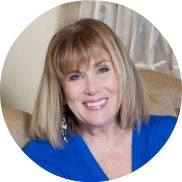It’s June, one of the biggest wedding months of the year.
Our friend Dr. Margaret Rutherford, a clinical psychologist in Fayetteville for 20 years, has a new gift book out about marriage, so we asked her to share a few tips for those of us who are newlyweds — and those of us who have been around the marriage block a time or two.
 Before we let Dr. Margaret share her tips, we want to tell you a little about her book, called Marriage is Not for Chickens. The book was born after she sat down to write a post about her 24-year marriage.
Before we let Dr. Margaret share her tips, we want to tell you a little about her book, called Marriage is Not for Chickens. The book was born after she sat down to write a post about her 24-year marriage.
Dr. Margaret shares some hard-earned truths in a series of statements about what marriage is — and what it most definitely is not — in this book. Each statement about marriage is accompanied by a beautiful photograph.
If you know someone who’s getting married this month or (or has been married a long time and will definitely be nodding their head ‘yes’ as they recognize the wisdom in what they’re reading) you might want to gift them with this book. You should probably buy yourself a copy, too.
Now let’s take a peek at Dr. Margaret’s marriage advice for all stages:
Marital therapy is one of the hardest, but most satisfying, work a therapist can do. Maybe it feels that way because if it works well, you realize that not only the adults involved are going to have a happier, more fulfilling life, but their kids are as well. That’s gratifying for sure.
Marriages morph as they grow in longevity and maturity. Each stage of marriage has its own joys, and its own pitfalls.
So what are ”tips” for couples in different stages of marriage?
 For all you newlyweds out there, congratulations! You’ve got the opportunity right now to set up great habits with each other. It’s a huge transition.
For all you newlyweds out there, congratulations! You’ve got the opportunity right now to set up great habits with each other. It’s a huge transition.
Number one tip? Discuss and decide what things you’re going to decide as a couple, and what things can have more autonomy about them.
Dependent on how long you’ve been “single and on your own,” this can be tricky.
From decisions about mixing finances to what kinds of relationships you want to set up with parents to what activities you might maintain by yourself—using a communication style where you reach compromise will set up success. Meanwhile, you’ve learned a process of how to listen and respect one another.
 What about those messy middle years? When there are kids, mortgages, moves and careers that can demand more than you can give? The first tip that comes to mind is one where way too many fall short.
What about those messy middle years? When there are kids, mortgages, moves and careers that can demand more than you can give? The first tip that comes to mind is one where way too many fall short.
Keep energy going toward you and your spouse’s relationship. If you focus on your kids or your careers more than you do each other, you’re going to be in trouble.
This doesn’t have to look like a week in Cabo, but it does have to be enough. Simply enough. You want to be reminded of why you chose this person in the first place, as you continue to ride the waves of middle mayhem – together.
 And now for those couples who’ve made it after twenty or more years. What’s a tip for them? Realize that both of you will approach aging differently.
And now for those couples who’ve made it after twenty or more years. What’s a tip for them? Realize that both of you will approach aging differently.
The reality of kids leaving home, retirement, your own parents’ deaths, or your bodies changing will be just as challenging as any you’ve faced before.
There may be unexpected loss as well. It’s important to be even more empathic and generous of spirit, and work on a sense of togetherness and resilience. Stay as playful as you can. Laugh a lot. And reach out to one another. You’ve worked this hard for a reason. Now you can enjoy the benefits of all that effort.
 Dr. Margaret Rutherford is a clinical psychologist, who has practiced for over twenty years in Fayetteville, Arkansas. Since 2012, her work has been found on her own website, where her eBook, “Seven Commandments of Good Therapy” is available for free download. Her perfect gift book of anniversaries, wedding or engagements, “Marriage Is Not For Chickens” is a feisty and poignant look at what marriage is, and what it definitely is not. She’s the current mental health columnist for Midlife Boulevard, hosts a regular FB Live video session on depression for The Mighty, and has recently launched a podcast, SelfWork with Dr. Margaret Rutherford, where you can listen to her direct and down-to-earth advice. Her expertise can also be found on The Huffington Post, Reader’s Digest, Prevention, Family Share and Psychology Today.
Dr. Margaret Rutherford is a clinical psychologist, who has practiced for over twenty years in Fayetteville, Arkansas. Since 2012, her work has been found on her own website, where her eBook, “Seven Commandments of Good Therapy” is available for free download. Her perfect gift book of anniversaries, wedding or engagements, “Marriage Is Not For Chickens” is a feisty and poignant look at what marriage is, and what it definitely is not. She’s the current mental health columnist for Midlife Boulevard, hosts a regular FB Live video session on depression for The Mighty, and has recently launched a podcast, SelfWork with Dr. Margaret Rutherford, where you can listen to her direct and down-to-earth advice. Her expertise can also be found on The Huffington Post, Reader’s Digest, Prevention, Family Share and Psychology Today.

